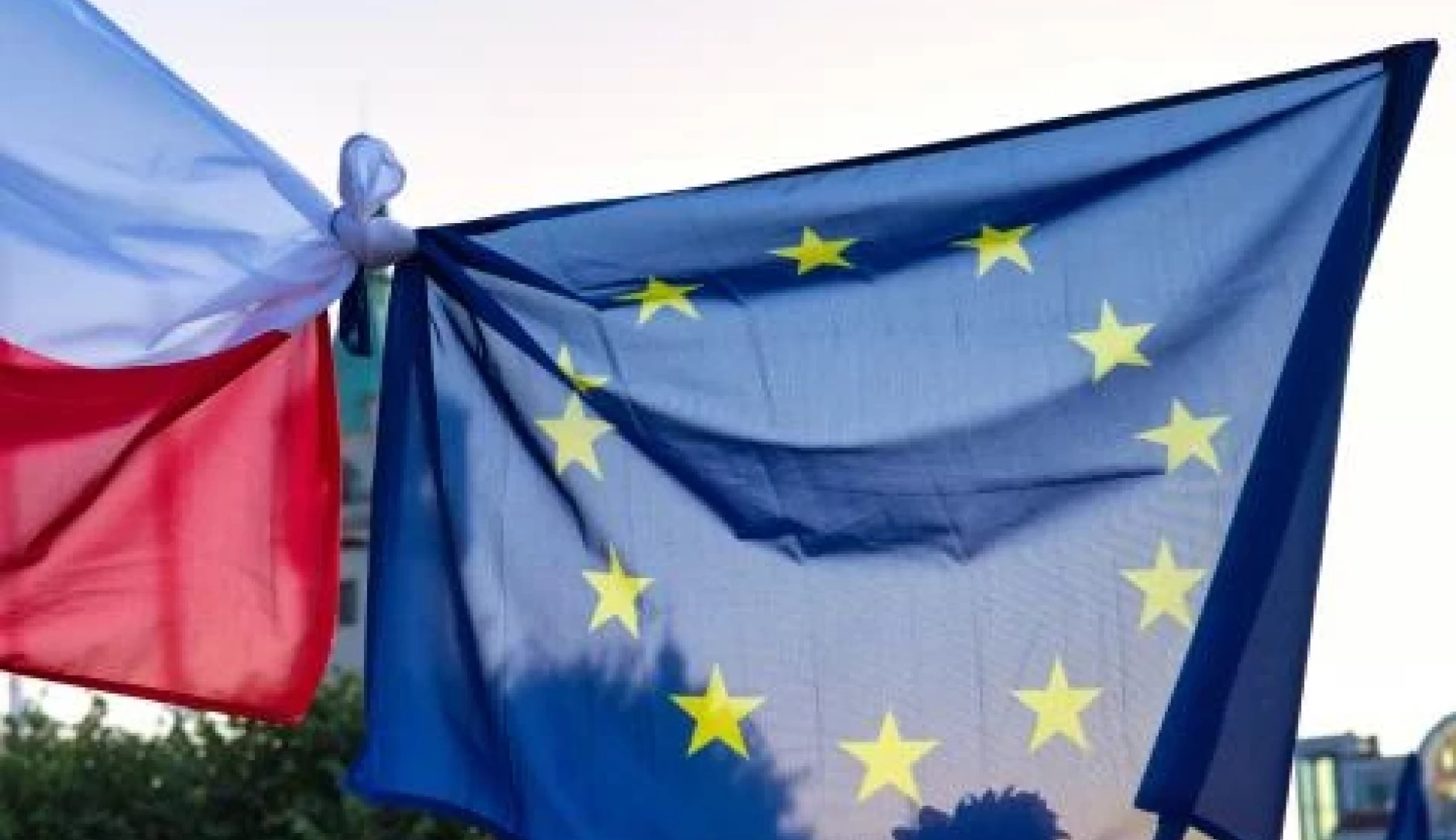Warsaw and Brussels: a unique opportunity to move forward
Donald Tusk can offer a stable relationship, but some unresolved questions remain. The EU must exercise caution if it wants to have a chance at reconciliation and future growth vis-à-vis Warsaw.

As the dust settles over the Polish political landscape after the Parliament appointed Donald Tusk as the country’s PM on Monday, the European Union finds itself with a unique opportunity: after 8 long years of the Law and Justice (PiS) party rule over Polish politics, and the migraine-inducing headaches it regularly generated for Brussels, Donald Tusk offers the prospect of a stable, transparent and promising relationship.
If we want to seize this opportunity, Volt argues that the EU should consider certain steps to give Tusk some space to deal with both domestic issues and external challenges.
As the dust settles
On the 15th of October, 2023, a sigh of relief was heard in many places across Europe. Most of all in Brussels, where the prospect of a Donald Tusk-led Poland was greeted with delight. In all fairness, how could it not? For the better half of the last decade, the EU has had to deal with the conservative, nationalist PiS party, which obstructed multiple ambitions of Brussels through its positioning on subjects such as LGBTQ+ rights, abortion, media freedom and Polish rule of law.
Manage your expectations
On top of domestic issues, a host of challenges remain in the area of foreign policy where Poland will be playing an important role. For example, Poland has been one of the leading players in supporting Ukraine during Russian aggression, welcoming an enormous amount of refugees, supplying ammunition and weapons, and supporting the country diplomatically on the world stage.
This support, however, is not necessarily of an unlimited nature: at the time of writing, Polish truck drivers and parts of the agrarian sector are protesting for fair and equal support to their businesses, as they obstruct transportation to- and from Ukraine. It is now up to the new Polish government to find a forward-looking solution that ensures good bilateral relations with Ukraine, while promoting the stability of the Polish economy through renewed support for Polish business owners.
Additionally, Tusk promised during the elections that “Poland would again influence the decisions of Europe, and not the other way around”.
Though spoken in the context of elections, this statement hints at the possibility that a total reset of the EU-Polish relationship is not a given.
Finally, with Polish local elections in April of next year, European elections afterwards, and to top it all off Polish presidential elections in 2025 – how much can the EU realistically expect from Tusk, when the Polish political carousel is just starting its gears?
Handle with care
In order to off-set the effect of anti-democratic forces in Europe, to maintain the rule of law, and to enlarge the Union with new Member States such as Ukraine and Moldova, Brussels needs Polish cooperation. Regardless of all the challenges, Volt believes that Brussels can still look forward optimistically, provided it gives Poland the time to recover from outdated policy-making.
As an example, one of Tusk’s campaign promises was acquiring the € 59 billion of the so-called Recovery and Resilience Facility (RRF) – a post-pandemic instrument, created to ensure economic recovery after the worldwide pandemic struck Europe. So far Brussels has not granted Poland access to this amount, because of concerns over the rule of law and judicial independence.
The Brussels’ response
Volt argues that opening up the RRF funds and ensuring that they reach the rightful recipients such as local governments and NGOs could provide positive momentum within Poland for democratic forces while placing the EU under a more positive light. The latter is not unimportant, seeing as a sizeable amount of Poles are not yet convinced of the benefit of cooperation with the Union.
Above all, Volt sees this as a unique opportunity. It would be unwise to squander it: as the EU faces mounting challenges in various forms in the next few years, having Poland as a reliable partner and ally will prove very beneficial.
Poles have several chances to reaffirm (or take back) their support to progressive, forward-looking decision making with multiple elections taking place in the next two years.
Even though the new Polish Government was formed only yesterday, the rise of interest in politics among Polish citizens, mainly the younger generation, is growing incredibly fast. As Mikołaj Franciszek Buszman, Co-President of Volt Polska, said “With this new government, politics is back in fashion in Poland. I hear politicised conversations on the streets, I see young people in the pub watching the parliament live stream on their phone and even meeting at the cinema to watch it on the big screen. This is a huge achievement already. May the hopes of Poles and Europe not be disappointed”.
Article by Benjamin Looijen.